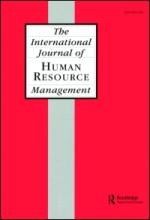
Interest in Islam and how Muslims organise themselves within the so-called Western world has largely stemmed from the flow of Muslim immigration since the 1960s and the 1970s (Loobuyck, Debeer, & Meier, 2013Loobuyck, P., Debeer, J., & Meier, P. (2013). Church–state regimes and their impact on the institutionalization of Islamic organizations in Western Europe: A comparative analysis. Journal of Muslim Minority Affairs, 33, 61–76.10.1080/13602004.2013.791192[Taylor & Francis Online]). Many of these immigrants have come to these new lands in the hope of making a better life for themselves economically, or to escape the political or religious pressures of their homeland (Lebl, 2014Lebl, L. S. (2014). The EU, the Muslim brotherhood and the organization of Muslim cooperation. Orbis, 57, 101–119.[CrossRef]). Initially, deeming the influx of these foreigners to be largely irrelevant, there was little interest in their presence by the different governments across many jurisdictions. Typically, scant interest was shown towards entering into dialogue with the Muslim immigrant community. Indeed, until the 1990s, it was not uncommon for Islam to be perceived as a strange, foreign religion that was best managed through outsourcing to respective consulates (Loobuyck et al., 2013Loobuyck, P., Debeer, J., & Meier, P. (2013). Church–state regimes and their impact on the institutionalization of Islamic organizations in Western Europe: A comparative analysis. Journal of Muslim Minority Affairs, 33, 61–76.10.1080/13602004.2013.791192[Taylor & Francis Online]). Yet, migration and work-based mobility has a significant influence on the world of work and societies in which organisations are embedded. Many individuals migrate for better employment perspectives, as well as due to chain migration, betterment in the quality of life and based on fleeing famine, war and terror zones globally (Sharma & Reimer-Kirkham, 2015Sharma, S., & Reimer-Kirkham, S. (2015). Faith as social capital: Diasporic women negotiating religion in secularized healthcare services. Women’s Studies International Forum, 49, 34–42.10.1016/j.wsif.2015.01.005[CrossRef], [Web of Science ®]; Valiūnienė, 2016Valiūnienė, V. K. (2016). Migration as the way for better employment perspectives: Case of European Union. International Journal of Social Science and Humanity, 6, 728–733.10.18178/ijssh.2016.6.9.741[CrossRef]). Migration could involve upward as well as downward mobility/wages, depending on the country and organisation. For example, minimum wages differ from € 184 in Bulgaria up to € 1923 in Luxembourg (Valiūnienė, 2016Valiūnienė, V. K. (2016). Migration as the way for better employment perspectives: Case of European Union. International Journal of Social Science and Humanity, 6, 728–733.10.18178/ijssh.2016.6.9.741[CrossRef]). Migration also contributes to the lived religion of diasporic communities as they navigate their faith at work (Sharma & Reimer-Kirkham, 2015Sharma, S., & Reimer-Kirkham, S. (2015). Faith as social capital: Diasporic women negotiating religion in secularized healthcare services. Women’s Studies International Forum, 49, 34–42.10.1016/j.wsif.2015.01.005[CrossRef], [Web of Science ®]).
